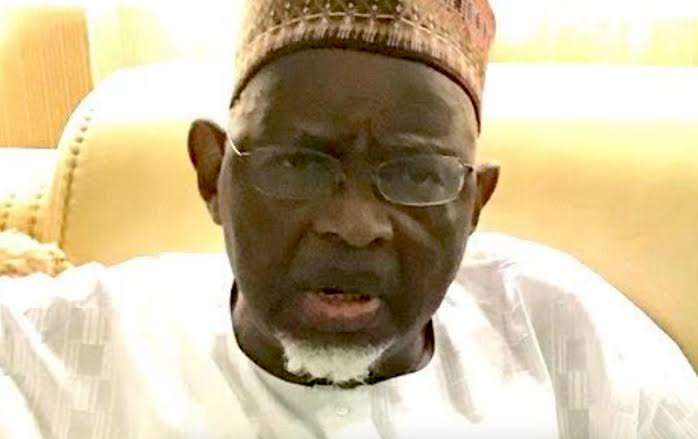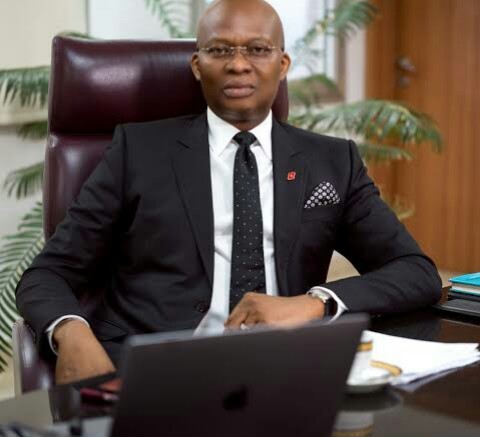Opinion
A Giant Falls: Celebrating the Life and Legacy of Professor Jibril Aminu (1939–2024)

In the quiet hours of Thursday, June 6, 2025, Nigeria lost one of its most distinguished sons. Professor Jibril Muhammad Aminu — a renowned scholar, physician, diplomat, and statesman — passed away in Abuja at the age of 85. With his passing, the nation bids farewell to a man whose life was a mosaic of service, intellect, and unwavering patriotism. As the country mourns, it is also a moment to celebrate a towering legacy etched into Nigeria’s educational, political, diplomatic, and healthcare landscape.
A funeral prayer was held for him at the Abuja National Mosque at 2:00 p.m. on the day of his death, and his remains were flown to his hometown in Song Local Government Area of Adamawa State for burial. Yet, no resting place can contain the magnitude of the life he lived or the impact he made.
Born in 1939 in Song, Adamawa State, Jibril Aminu’s journey began in the dusty plains of northeastern Nigeria but soon extended to the heights of national and international prominence. From a young age, he demonstrated brilliance and an unrelenting drive for excellence. He studied medicine at the University of Ibadan and graduated in 1965 with distinction, emerging as the best student from the University College Hospital (UCH), Ibadan — a feat that would set the tone for a remarkable career.
He went on to earn a Ph.D. in Medicine from the Royal Postgraduate Medical School, London, in 1972, specialising in cardiology. His grounding in medical sciences was not only deep but also purposeful, and he brought that same intellectual rigour into every role he later held. As a consultant cardiologist and researcher, Aminu served with clarity of vision and a rare moral compass. His contributions to medical practice and education helped shape a generation of Nigerian doctors, and his passion for public health would inform much of his later work in governance.
Perhaps it was inevitable that a mind so rich in knowledge would find expression in academia. Professor Aminu’s name is etched in the annals of Nigeria’s educational history. He served as Executive Secretary of the National Universities Commission (NUC), where he was instrumental in strengthening the foundations of Nigeria’s university system. A fierce advocate for academic standards, he emphasized the need for merit-based education, sound curricula, and institutional autonomy.
His commitment to education was further tested and proven when he was appointed Minister of Education in 1989. In this role, Aminu sought to overhaul the sector, pushing for reforms that prioritized access, equity, and quality. He was an educationist who believed that no nation could rise above the quality of its schools — and that to nurture minds was to build a future.
He also played key roles in policy formulation that promoted science and technical education, knowing that Nigeria’s developmental aspirations could not be met without equipping the youth with relevant skills. His efforts to improve funding for schools, support for teacher training programs, and his principled stand on academic freedom were hallmarks of his tenure.
Steward of Nigeria’s Oil Sector
Aminu’s transition from education to energy came when he was appointed Minister of Petroleum and Mineral Resources, a position he held from 1989 to 1992. At a time when Nigeria’s oil sector was undergoing significant shifts, Aminu brought clarity and professionalism to a ministry plagued by opacity. He stood for transparency and accountability in a sector long dominated by elite interests and international power play.
During his time as Minister, he was elected President of the African Petroleum Producers’ Organisation (1991) and served as President of the OPEC Conference from 1991 to 1992 — a rare feat for a Nigerian official. These roles placed him at the epicenter of global energy diplomacy. He advocated for fair oil pricing, regional cooperation, and the use of energy revenues for sustainable national development.
Colleagues remember him as a technocrat who understood the geopolitical weight of oil and sought to use Nigeria’s position to champion African interests. He resisted pressures from powerful oil multinationals and domestic cartels, determined to leave behind a legacy of responsible resource management.
In 1999, Jibril Aminu was appointed Nigeria’s Ambassador to the United States. This came at a time when Nigeria was re-emerging on the global stage following years of military rule. He quickly became one of the most respected African envoys in Washington, navigating the complexities of U.S.-Nigeria relations with grace, tact, and intellectual force.
Aminu’s ambassadorship coincided with a crucial period in Nigerian foreign policy, as the Obasanjo administration sought to rebuild the country’s image and attract foreign investment. He was the right man for the job. His understanding of both Nigerian and Western sensibilities made him an effective bridge between nations. He promoted Nigeria’s democratic credentials, championed debt relief, and advocated for better trade relations.
In American policy circles, he was seen as articulate, principled, and diplomatic — the kind of representative any country would be proud to have. He left Washington with the respect of both friends and critics, having restored much of Nigeria’s prestige abroad.
Senator, Statesman
Upon his return to Nigeria, Jibril Aminu was elected Senator for Adamawa Central in 2003, a seat he held until 2011. As a lawmaker, he brought uncommon depth to legislative debates. His interventions were always evidence-based, shaped by decades of experience in policy, governance, and diplomacy.
He served on several key committees, especially those relating to education, health, and foreign affairs. Aminu believed the legislature must be a forum for ideas, not just political deals. He was a rare example of an intellectual in politics who maintained his dignity and never compromised his principles.
In the Senate, he was not the loudest voice, but certainly among the most respected. He mentored younger lawmakers, advised leadership behind the scenes, and remained a consistent advocate for the North-East, especially Adamawa.
Chair of the Zik Prize
Until his death, Professor Aminu served as the chairman of the Public Policy Research and Analysis Centre (PPRAC), organizers of the prestigious Zik Prize in Leadership — an award that celebrates excellence in public service and leadership in Africa. Under his stewardship, the award maintained its integrity and prestige, further cementing Aminu’s belief in the importance of good governance and ethical leadership.
The Zik Prize symbolized all that Aminu stood for: unity, excellence, and service. He once remarked that, “Leadership must be a call to serve and elevate others, not an avenue for self-enrichment.”
Away from public office, Aminu was a husband, father, grandfather, and community leader. His intellectual brilliance was matched by humility and grace. Those who knew him personally describe him as gentle but firm, wise but unassuming, accomplished but modest.
In Adamawa, he was a guiding light. In the North, a revered elder. In Nigeria, a national treasure. He embodied a generation of leaders who believed in the promise of the country and worked tirelessly to realize it — without fanfare, without scandal, and without the noise that often distracts from purpose.
In a country often defined by short-lived stints and squandered opportunities, Professor Jibril Aminu was a long-distance runner. His public service spanned over four decades, cutting across academia, medicine, energy, diplomacy, and legislation.
His death is not just a personal loss to his family and friends, but a national loss to Nigeria. In the words of Adamawa State’s Commissioner for Housing and Urban Development, Abdullahi Prambe: “His contributions to education, healthcare, and governance will remain etched in our history.”
Today, as he is laid to rest in the soil that birthed him, we remember not just what he did, but what he represented — excellence, integrity, intellect, and service.
Nigeria, and indeed Africa, has lost a legend. But the seeds he planted — in minds, institutions, and policies — will continue to bear fruit for generations to come.




